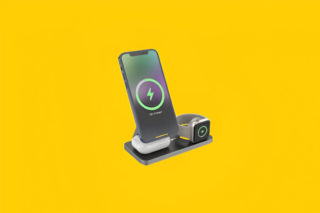Your phone might know your secrets, but apparently, ChatGPT now knows your future—at least according to one woman who trusted AI more than her marriage vows.
In what feels like a Black Mirror episode that Netflix rejected for being too on-the-nose, a Greek woman recently divorced her husband of 12 years after ChatGPT “read” the coffee grounds from their cups and declared he was having an affair. Not content with just regular old human paranoia, she outsourced her suspicions to an algorithm that has about as much mystical insight as a Magic 8-Ball with a computer science degree.
When Silicon Valley Meets Superstition
The trouble started when the woman uploaded images of coffee remnants to ChatGPT, asking for an interpretation—a digital twist on tasseography, the ancient practice of reading patterns in coffee grounds. The AI boldly claimed her husband was fantasizing about a younger woman whose name started with “E,” adding that this mystery woman posed a threat to their family.
Taking ChatGPT’s divination as gospel truth, the woman filed for divorce within three days. She didn’t bother with trivial steps like actual evidence or conversation—who needs those when you’ve got the digital equivalent of a carnival fortune teller making life decisions for you?
The husband, who appeared on Greek morning television looking understandably bewildered, pointed out his wife’s history of believing in pseudoscientific trends like astrology. His lawyer is contesting the divorce, arguing that AI-generated interpretations of coffee grounds have the same legal standing as a horoscope written by a toddler—absolutely none.
Your AI Assistant, The Home-Wrecker
What makes this story more than just another bizarre headline is how it perfectly captures our complicated relationship with AI. We’re simultaneously skeptical of and overly trusting in these systems, often in all the wrong ways.
The woman in this case trusted ChatGPT to perform a task it was never designed for—interpreting coffee grounds like a mystic from the old country. Meanwhile, millions worry about AI stealing their jobs when it can barely generate a coherent paragraph without hallucinating facts. And now, to add to the confusion of ChatGPT Sending Mysterious Messages—a headline as fitting as it is unsettling
This isn’t just about one person making a questionable decision. It’s about how quickly we’ve normalized asking machines to make sense of deeply human matters—from love to career choices to health concerns.
Digital Divination Gone Wild
This Greek coffee drama isn’t even the first time AI has been given inappropriate authority in personal relationships. In 2024, a TikTok trend had users asking ChatGPT to “analyze” text messages from potential dates to determine compatibility and red flags. One user reportedly broke off a promising relationship based solely on ChatGPT’s assessment that their texting patterns indicated “commitment issues”—all from a handful of casual messages.





























